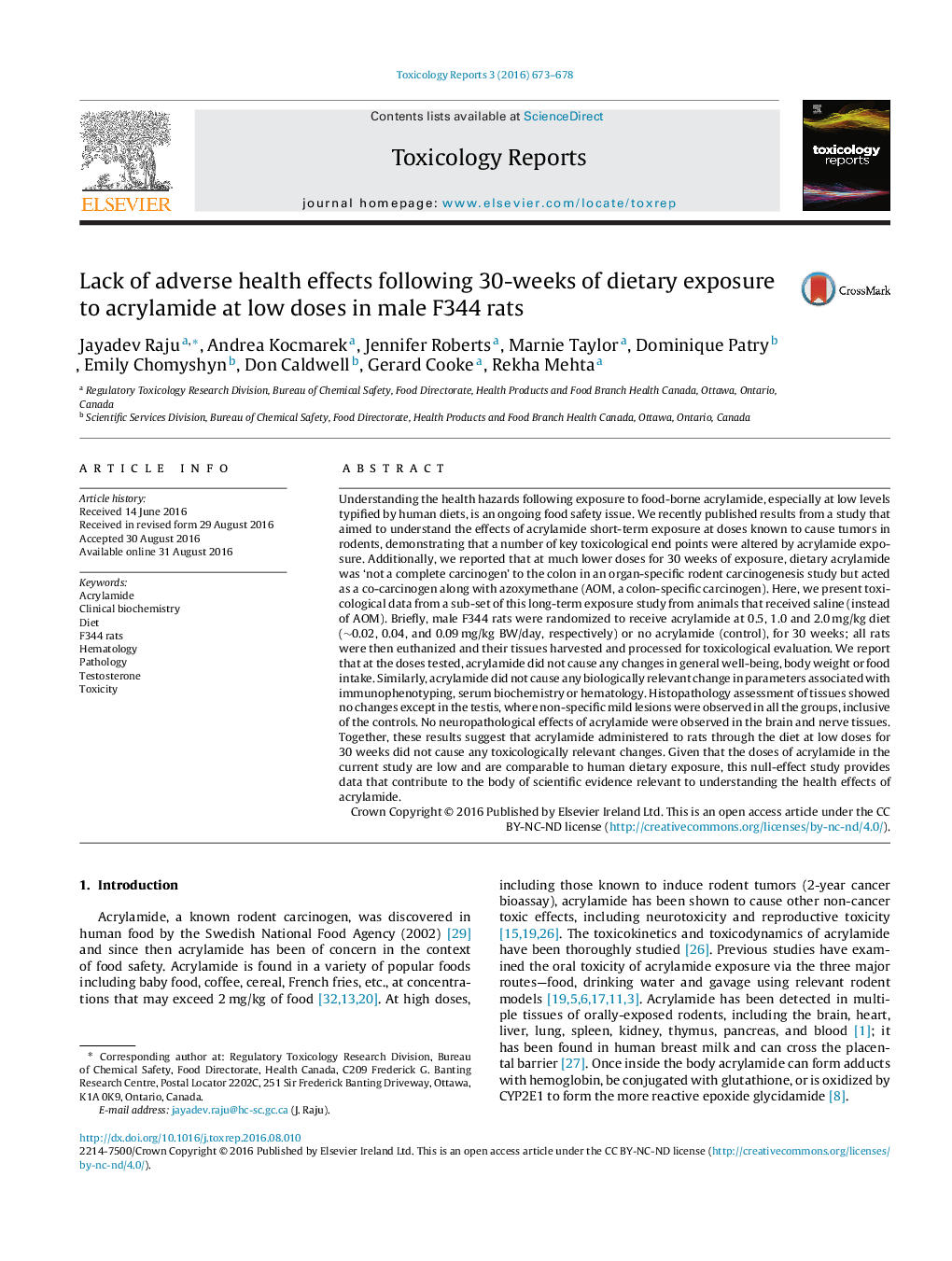| Article ID | Journal | Published Year | Pages | File Type |
|---|---|---|---|---|
| 2572177 | Toxicology Reports | 2016 | 6 Pages |
Understanding the health hazards following exposure to food-borne acrylamide, especially at low levels typified by human diets, is an ongoing food safety issue. We recently published results from a study that aimed to understand the effects of acrylamide short-term exposure at doses known to cause tumors in rodents, demonstrating that a number of key toxicological end points were altered by acrylamide exposure. Additionally, we reported that at much lower doses for 30 weeks of exposure, dietary acrylamide was ‘not a complete carcinogen’ to the colon in an organ-specific rodent carcinogenesis study but acted as a co-carcinogen along with azoxymethane (AOM, a colon-specific carcinogen). Here, we present toxicological data from a sub-set of this long-term exposure study from animals that received saline (instead of AOM). Briefly, male F344 rats were randomized to receive acrylamide at 0.5, 1.0 and 2.0 mg/kg diet (∼0.02, 0.04, and 0.09 mg/kg BW/day, respectively) or no acrylamide (control), for 30 weeks; all rats were then euthanized and their tissues harvested and processed for toxicological evaluation. We report that at the doses tested, acrylamide did not cause any changes in general well-being, body weight or food intake. Similarly, acrylamide did not cause any biologically relevant change in parameters associated with immunophenotyping, serum biochemistry or hematology. Histopathology assessment of tissues showed no changes except in the testis, where non-specific mild lesions were observed in all the groups, inclusive of the controls. No neuropathological effects of acrylamide were observed in the brain and nerve tissues. Together, these results suggest that acrylamide administered to rats through the diet at low doses for 30 weeks did not cause any toxicologically relevant changes. Given that the doses of acrylamide in the current study are low and are comparable to human dietary exposure, this null-effect study provides data that contribute to the body of scientific evidence relevant to understanding the health effects of acrylamide.
